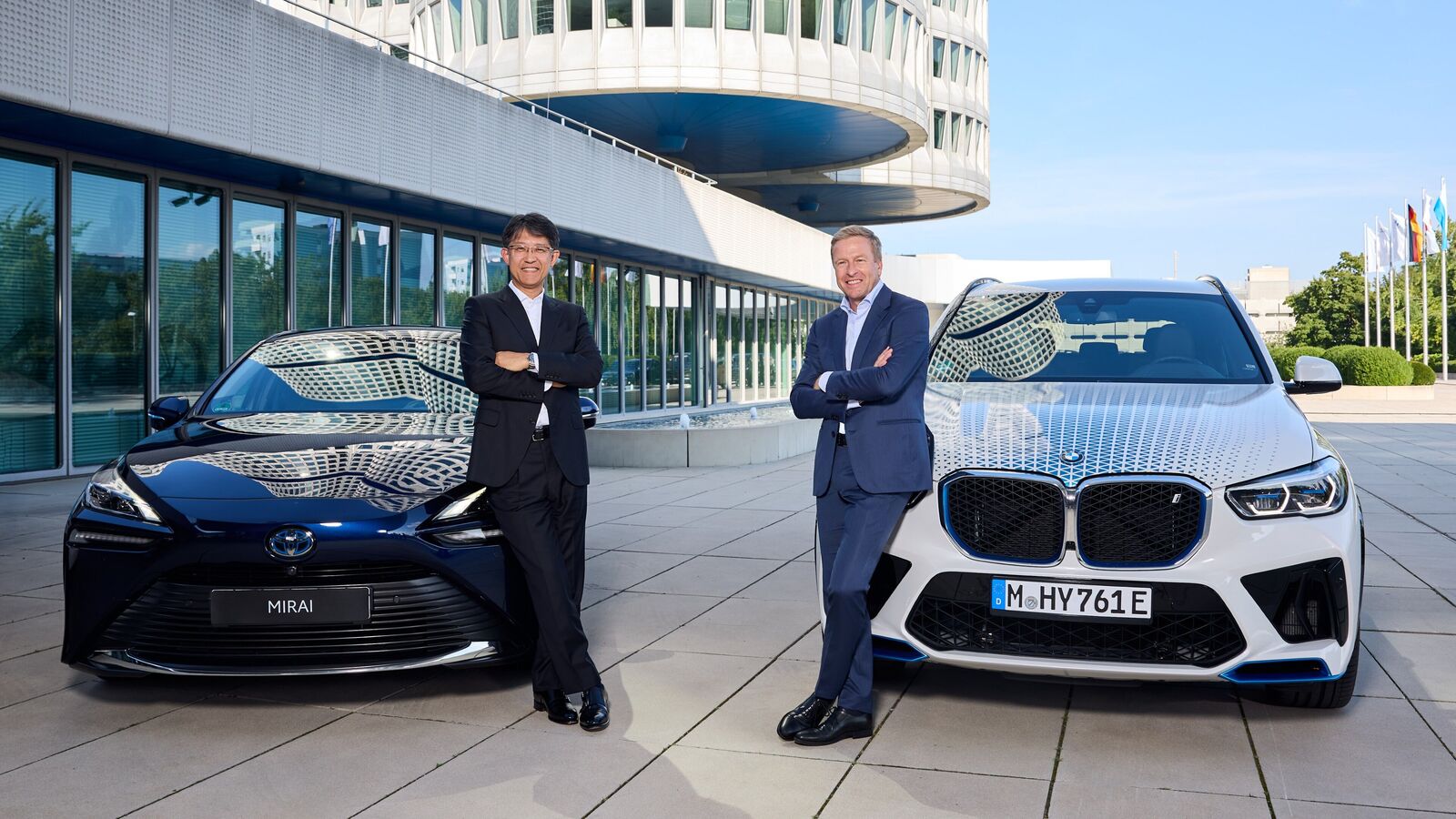BMW and Toyota Collaborate on Next-Gen Hydrogen-Powered iX5 SUV for 2028
Key Ideas
- BMW and Toyota are teaming up to co-develop Fuel Cell Electric Vehicles (FCEVs) for the future, with BMW's first hydrogen car expected to debut in 2028.
- Toyota's decade-long experience with FCEVs, particularly the Mirai, will aid BMW in accelerating its hydrogen vehicle development while sharing resources and R&D costs.
- The upcoming BMW iX5 will likely be hydrogen-powered, utilizing a newly developed FCEV powertrain system co-developed with Toyota, maintaining BMW's brand DNA.
- The collaboration signifies a shift towards hydrogen technology as a crucial component in the electric mobility landscape alongside battery-electric systems, with BMW's future models integrating hydrogen technology.
BMW and Toyota have announced a collaboration to co-develop Fuel Cell Electric Vehicles (FCEVs), with BMW's first hydrogen car anticipated to launch in 2028. This partnership marks a significant step towards the future of automotive technology, aiming to offer hydrogen-powered cars to consumers. Toyota's expertise in FCEVs, demonstrated through models like the Mirai, will support BMW in expediting its hydrogen vehicle development process by leveraging shared knowledge and resources. The next-generation BMW iX5 is poised to be hydrogen-powered, featuring a newly developed FCEV powertrain system resulting from the joint efforts of BMW and Toyota. Emphasizing the preservation of BMW's brand identity, the hydrogen model is expected to be integrated seamlessly into the existing vehicle architecture. The collaboration reflects a broader industry trend towards embracing hydrogen technology as an essential element of the electric mobility landscape, complementing battery-electric systems. By incorporating hydrogen technology into its future models, BMW is aiming to provide consumers with diverse environmentally friendly options that align with evolving market demands and sustainability goals.
